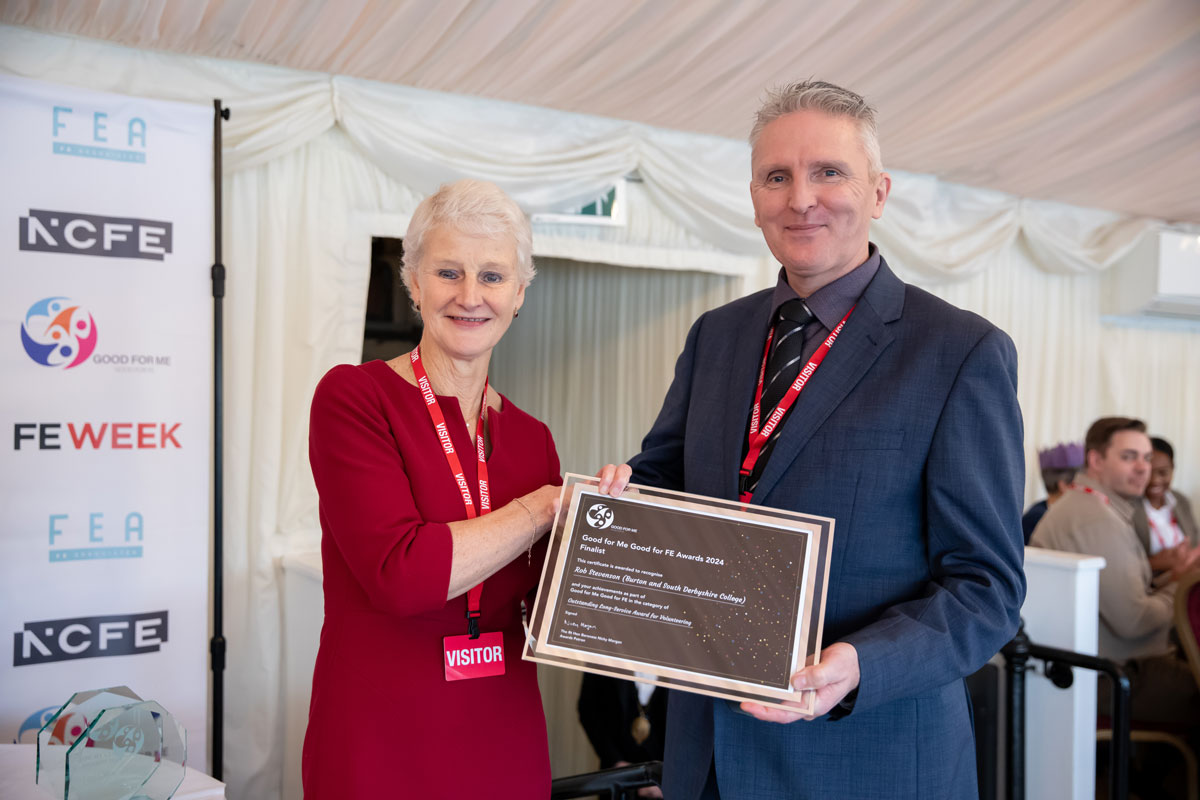SQA outlines vision for new joint curriculum and assessment body

In its response to Professor Ken Muir’s consultation on the future shape of Scotland’s national education agencies, SQA calls for a new national body with responsibility for:
- a single integrated approach to curriculum, assessment, qualifications and accreditation
- both academic and vocational qualifications, with parity of esteem between the two and greater availability of vocational courses in schools
- delivery of qualifications outside Scotland, to maintain and further enhance the global reputation of Scottish education
- supporting the teaching profession’s understanding and application of curriculum development, assessment, quality assurance and national standards
SQA also believes the new body provides an opportunity to be bold on driving forward digital assessment and to put learners at the heart of a more collaborative approach to decision-making.
Fiona Robertson, SQA Chief Executive, comments:
“Our response to Professor Muir’s consultation is forward-looking, setting out the collective vision of SQA staff. It identifies opportunities for the whole education and training system in Scotland and sets out how, with the right investment, expertise and resources, these can be realised.
“We believe that a new organisation, maximising the existing wealth of expertise and experience of staff in SQA, could provide the catalyst to improve how education and training can meet the needs of learners, labour markets, and the economy.”
In its wide ranging submission, SQA asserts that by having one organisation responsible for the development of curriculum, assessment, accreditation and qualifications, together with the right level of support for teachers and lecturers, all partners and stakeholders in Scottish education could collectively get behind a coherent, credible and sustainable system.
David Middleton, SQA Chair, comments:
“In addition to providing views on the future, our response highlights the ongoing importance and coherence of SQA’s current functions and statutory responsibilities – and the need for continued safe and secure delivery of a broad range of qualifications to schools, colleges, training providers and employers.”
SQA consultation response
This response provides the views of staff at the Scottish Qualifications Authority (SQA) on the future shape of Scotland’s national education agencies, in response to the Muir Review consultation.
In so doing, it highlights the ongoing importance and coherence of SQA’s current functions and statutory responsibilities — and the need for continued safe and secure delivery of a broad range of qualifications to schools, colleges, training providers, whilst planning for a new future.
The key elements of SQA’s response are:
- ♦ There should be a new national body with responsibility for an integrated and coherent approach to curriculum, assessment, qualifications and accreditation.
- ♦ The new body should be responsible for all aspects of the qualifications portfolio, which should be given an equal platform in a reformed organisation. This includes:
- — both academic and vocational qualifications, accompanied by work to ensure that a wider range of vocational qualifications are available in every school and to build parity of esteem between academic and vocational qualifications.
- — qualifications offered outside Scotland, to maintain the highly-regarded global reputation of Scottish education, and to support the Scottish Government’s internationalisation agenda.
- ♦ Accreditation and regulatory functions should be part of the new body’s remit, with appropriate governance to ensure the separation of responsibilities are clear and protected.
- ♦ All qualifications, including those contained within Apprenticeships in Scotland, should be accredited, regulated and included on the Scottish Credit and Qualifications Framework (SCQF).
- ♦ The new body should play a key role in supporting the teaching profession in curriculum development, assessment, quality assurance and national standards.
- ♦ Proactive, positive and meaningful engagement with stakeholders should be part of the DNA of a new national body and learners must be at the heart of a more collaborative approach to decision-making.
- ♦ Reform provides an opportunity to be bold in driving forward digital assessment and to rethink how technology provides end to end support.
The OECD Review highlighted that there is a case for a new curriculum, assessment and qualifications body to be established.
SQA agrees that there is a case to be considered. However, we do not believe that the creation of this new
body will deliver change and improvement on its own. Structural reform needs to be considered alongside important issues of capacity and culture, together with greater clarity on roles and responsibilities across the whole education system, nationally, regionally and locally. At the same time, the creation of a new body itself must be fully considered, developed, and implemented whilst minimising operational and delivery risks to the current education system, including the current role of SQA in delivering qualifications.
The awarding, accreditation and regulation of qualifications needs to remain at arm’s length from government but needs to work closely with the education and training system and the learners it serves, to ensure it meets the needs of learners, the labour market and the economy. Regulated qualifications provide learners and stakeholders with a guarantee of the quality standards of the learning architecture in Scotland, and there is a strong case for regulation to move from a voluntary system to a more formalised one for all publicly funded qualifications offered in Scotland by a range of awarding bodies.
The creation of a new curriculum, assessment and qualifications body could provide the catalyst to refine and improve the approach to assessment, develop more sustainable and efficient products and services, and contribute to learner centric and more effective and pandemic-proof delivery methods. However, this will require additional investment and support from across the education system.
This is also a potential catalyst for cultural change in Scotland:
creating a trusted, reliable and stable operating model of high quality, delivering consistent and credible qualifications, working towards achieving parity of esteem between academic and vocational pathways, and providing learners with choice and the opportunity to personalise their assessment journey to best meet their needs.
A new curriculum, assessment and qualifications body could create an opportunity to collectively take responsibility for change, developing new skills and capabilities for the future to improve the outcomes for Scotland’s young people and lifelong learners.
The full text, detailing SQA’s response to Professor Muir’s consultation. (619 KB)
Education reform: Education Scotland and the Scottish Qualifications Authority

30 Sep 2021: A consultation on the replacement of the Scottish Qualifications Authority and the reform of Education Scotland.
Both OECD reports cover wide areas of Scottish education and impact on the work of many practitioners and stakeholders in many contexts. This consultation is not an attempt to survey all of the areas covered by the two OECD reports. Its main focus is on the ownership of Curriculum for Excellence; how we address the issues around roles and responsibilities for curriculum and assessment; and how we address the “misalignment” between the Broad General Education[4] and the Senior Phase[5] identified by the OECD. It also gives you the opportunity to make suggestions from your particular perspective on the changes you think are necessary to enhance the experiences and outcomes of current and future learners.
The Organisation for Economic Co-operation and Development (OECD)[1] report of June 2021[2] notes that engagement lies at the heart of Curriculum for Excellence and that the voices of young people, parents, teachers, lecturers and leaders, as well as other stakeholders, should be at the centre of education policy development. Therefore, this consultation is an open invitation for all who have an interest in Scottish education to engage in helping set the direction of travel for the future of Scottish education. It seeks your views and ideas on how we can build on the strengths we have developed in Scottish education and address some of the recommendations and questions raised in both the June OECD report and the August OECD report on student assessment[3].
Any transition to introducing change needs to ensure a continuation of high-quality education for all learners while those changes are made. That is why this consultation invites your views on the risks relating to any change and the implications of these changes on wider parts of the education system. Responses are invited from both individuals and organisations and I would very much encourage joint responses from groups of individuals who have come together to discuss this work.
Thank you for taking part in this consultation exercise. The views of all stakeholders are important so please try to complete as much of it as you can from the perspective you have, including taking the opportunity to respond to the open-ended questions that seek your ideas for improving outcomes for all learners.
Thank you,
Professor Ken Muir, University of the West of Scotland
Scotland’s Education reform
22 Jun 2021: Improving outcomes for children and young people.
The views of teachers, parents and pupils will be central to Scotland’s education reforms following a review of the school curriculum.
The Scottish Government has accepted in full all 12 recommendations in the Organisation for Economic Co-operation and Development Organisation (OECD) report and has published how it intends to take them forward.
Education Secretary Shirley-Anne Somerville has announced the Scottish Education Council will be reconvened. The Council will have a refreshed membership, including young people, and a renewed purpose to support the delivery of the OECD’s recommendations.
A new Children and Young People’s Education Council will also be created to ensure that the voices of those who are most affected by any changes in education are always heard in strategic discussions.
Professor Ken Muir CBE, who was until recently Chief Executive of the General Teaching Council for Scotland, will lead work to replace the Scottish Qualifications Authority (SQA) with a new specialist agency for both curriculum and assessment.
Professor Muir and an advisory panel will also look at reforms to Education Scotland, including removing the function of inspection from the agency.
Ms Somerville said:
“We must ensure that our children and young people can fully benefit from a coherent learning experience from age three up to the age of 18.
“I am absolutely committed to putting the voices of young people, parents, teachers and schools right at the centre of our education policy.
“All of the changes we make will be guided by the central principle that they improve the experiences and outcomes of children and young people in Scotland’s education system.
“The Scottish Government will work alongside all partners to co-design a more detailed implementation plan on the OECD’s recommendations, with a view to publishing this in September.”
A statement on behalf of the SQA, Education Scotland and Association of Directors of Education in Scotland (ADES) said:
“We welcome the OECD report and its endorsement of the continued relevance and ambition of Curriculum for Excellence.
“This review is a positive opportunity to secure improvement in a range of areas, and will help all of us in Scotland to look at what we want from our curriculum in the longer term, and what we need to do to achieve this.
“We share a common commitment to working together to implement the recommendations of the report and to ensure that the curriculum contributes as effectively as possible to the education and development of all young people in Scotland.”
Professor Muir said:
“Education systems across the world are changing as the world in which we live changes. I look forward to engaging widely with all stakeholders as part of my work.
“I want to understand fully their needs and listen to their suggestions on how we build on current strengths and how we might re-imagine, design and implement reforms into our education system that will truly respond to the future needs of every community and every child and young person.”
The Education Secretary intends to outline plans for awarding national qualifications in 2022 by the start of the new school term this August, taking into account the most up-to-date position with the pandemic.
Further consideration of changes to the qualifications and assessment system will be heavily informed by the next OECD report, expected by the end of August.
Pupils taking national qualifications this year and next will not be affected.
Background:











Responses